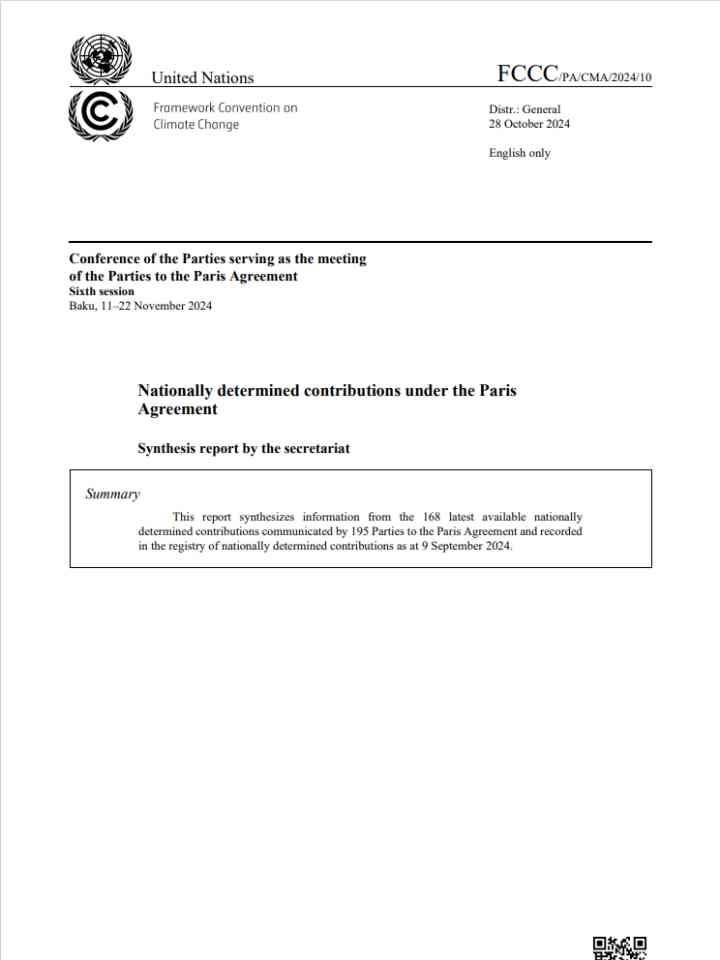Nationally determined contributions under the Paris Agreement. Synthesis report by the secretariat
The report synthesizes information from 168 latest Nationally Determined Contributions (NDCs) submitted by 195 Parties to the Paris Agreement, covering 95% of global emissions in 2019. It highlights that 94% of Parties have provided quantified mitigation targets, with global greenhouse gas emissions projected to be approximately 53.0 Gt CO₂ eq in 2025 and 51.5 Gt CO₂ eq in 2030-levels similar to 2019. While there is a potential for global emissions to peak before 2030, the current NDCs are insufficient to limit global warming to 1.5°C or 2°C above pre-industrial levels. The report emphasizes the increasing inclusion of adaptation strategies, gender considerations, and recognition of Indigenous Peoples and local communities in NDCs, but underscores the significant gap between current commitments and the emission reductions required to meet global climate goals.
Major recommendations include:
- Enhance ambition and implementation: parties should increase the ambition of their NDCs and accelerate implementation efforts to bridge the gap between current commitments and necessary emission reductions.
- Update NDCs for global goals: align NDCs with the goal of limiting global warming to well below 2°C, preferably 1.5°C, by adopting more stringent mitigation targets and expanding the coverage of sectors and greenhouse gases.
- Increase support from developed countries: developed nations should augment financial, technological, and capacity-building support to developing countries to facilitate the implementation of both conditional and unconditional elements of NDCs.
- Enhance international cooperation: strengthen international cooperation under Article 6 of the Paris Agreement to achieve cost-effective emission reductions through mechanisms like carbon markets and collaborative approaches.
- Prioritize transparency and integration: promote transparent reporting and integrate NDC targets into national legislation and planning processes to enhance accountability and drive effective climate action.
Explore further
